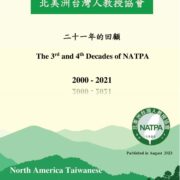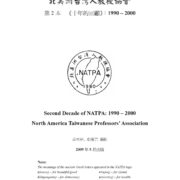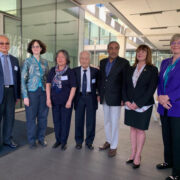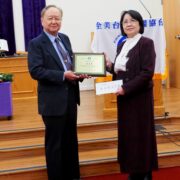Taiwan Inquiry 探討台灣
作者 NATPA
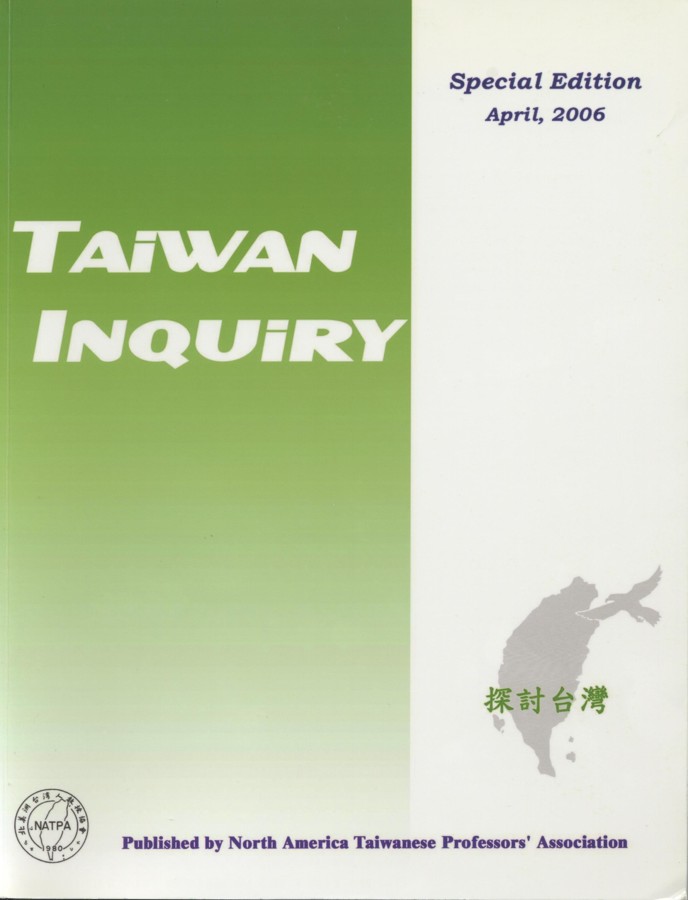
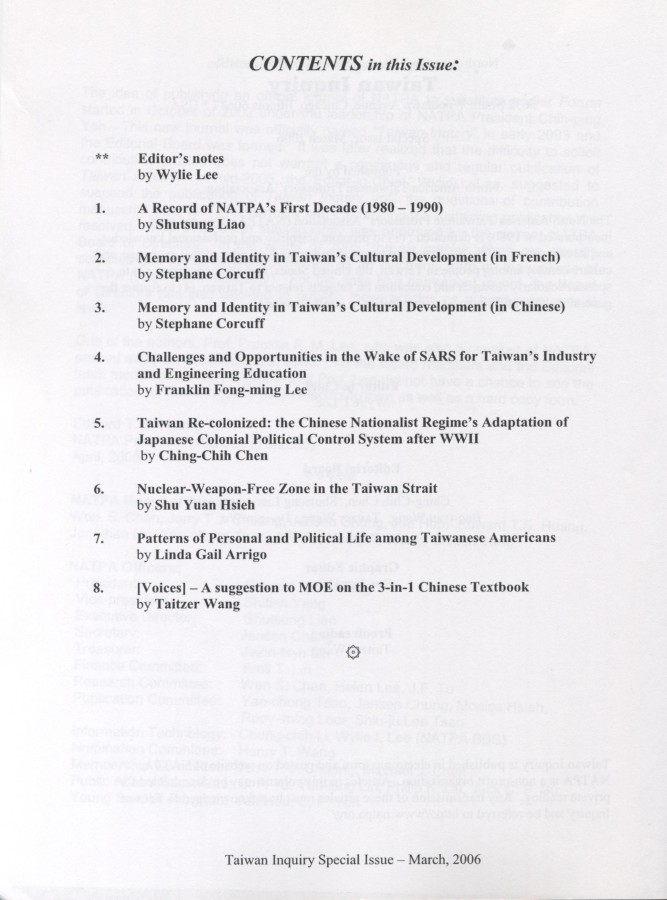
Editor’s Notes …… Wylie I. Lee
When I proposed the name “Taiwan Inquiry” for NATPA’s new journal, it was met with questions like “Are you trying to confuse the public with the well known Taiwan Independent Movement?” and “Why use the term INQUIRY? Doesn’t it send a negative image about Taiwan? “ NATPA had an official publication “Newsletter” in its early years since it was founded in 1980. Newsletter was replaced by NATPA Forum (Ed. Wen-yen Chen) in 1994. But NATPA Forum was suspended in 1998 after four years9 active publication. In Winter of 2002, the Board of Directors (President: Chih-ping Yeh) felt there is a need to establish an official publication that will address to every aspects of subjects that are related to Taiwan and it should become the most comprehensive resource for academic studies in Taiwan. I understand that a “Forum” is a medium of open discussion or voice ideas and it can not meet the requirement of this new journal proposed by the Board of Directors. Therefore I used “Taiwan Inquiry” to emphasize the goal of this new journal, which will publish articles that take a close examination of matter in search for information or a detailed narrative record.
With the support of several enthusiastic members of NATPA, I had the Editorial Board in mid-2003 and we started to solicit manuscript and I was hoping to publish the Inauguration Issue before 2004. However, I soon realized that it is difficult to get many articles from members and their friends. Without going into the details of this difficulty, I finally decided to publish “Taiwan Inquiry” with the articles we have at hand with the quickest and least costly method – posting these articles on NATPA Website.
Articles in this issue cover the detail historic account of Taiwanese and Taiwanese- American’s activities in the critical period of the democratization of Taiwan (articles by Shutsung Liao and Linda G. Arrigo), the critical review on social, political, and educational issues in Taiwan (articles of Stephane Corcuff, Franklin Fong-ming Lee, Ching-Chih Chen, and Shu Yuan Hsieh). Finally, in the [Voices] section, which is intended to publish voices that address to the critical issues in Taiwan, a suggestion to MOE on textbook for Taiwanese language (voice by Taitzer Wang).
Finally, I like to express my greatest appreciation to persons who submitted their manuscripts to Taiwan Inquiry. The hard work of Taitzer Wang and Ching-Chih Chen on editing is invaluable to this publication. I hope the Web-version of Taiwan Inquiry will generate further enthusiasm and support to this new journal so we can publish Taiwan Inquiry in near future as we planned in 2003.
Print in 2006/04
Posted in 2015/12

